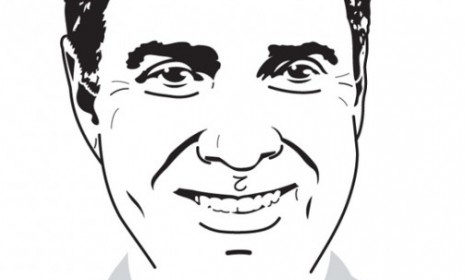Why both parties should embrace ObamaCare's state exchanges
Largely lost in the fight over ObamaCare is a worthy provision that lets states develop insurance systems that are right for them — but they must act soon

A free daily email with the biggest news stories of the day – and the best features from TheWeek.com
You are now subscribed
Your newsletter sign-up was successful
When the new health care reform law was being debated in 2009 and 2010, everyone talked about "death panels." When challenged in court, everyone debated the individual mandate. After last month's Supreme Court decision, the conversation has now switched to Medicaid. During all of this, however, we have largely ignored what is perhaps the most innovative, market-driven, and ultimately constructive part of the law: State exchanges.
Originally a Republican idea, the state insurance exchanges mandated under the Affordable Care Act (ACA) will offer a menu of private insurance plans to pick and choose from, all with a required set of minimum benefits, to those without employer-sponsored health insurance. These exchanges are expected to bring health insurance to an additional 16 million Americans. Unlike the Medicaid expansion, these Americans will gain private insurance, and can choose the plan that's right for them.
The exchanges should facilitate competition among private insurers as they design new benefit packages and cut prices to stay ahead of the game. While I'm slow to favor a mandate, these exchanges will offer those who can benefit from insurance a broad array of tailored options and varying prices that should help them find it. Helping more Americans find and compare the private insurance they need and can afford should be an easy principle both political parties agree on.
The Week
Escape your echo chamber. Get the facts behind the news, plus analysis from multiple perspectives.

Sign up for The Week's Free Newsletters
From our morning news briefing to a weekly Good News Newsletter, get the best of The Week delivered directly to your inbox.
From our morning news briefing to a weekly Good News Newsletter, get the best of The Week delivered directly to your inbox.
As a doctor, I strongly believe that people without health insurance die sooner. Sure, they can eventually go to an emergency room. But it is often too late. They wait longer to get a breast lump checked out. They wait until their nagging cough turns into a fulminant pneumonia. They skip preventive care and then show up to the ER with severe, costly, late-stage symptoms that are harder and more expensive to treat.
State exchanges are the solution. They represent the federalist ideal of states as "laboratories for democracy." We are seeing 50 states each designing a model that is right for them, empowered to take into account their individual cultures, politics, economies, and demographics. While much planning has yet to be done, we are already seeing a huge range in state models. I love the diversity and the innovation.
Helping more Americans find and compare the private insurance they need and can afford should be an easy principle both political parties agree on.
Want a more conservative, small-business focused exchange that bans abortion coverage in all its plans? Try Utah and its state exchange, originally founded under Gov. Jon Huntsman. Think that President Obama missed a huge opportunity to steer the nation towards a single payer system? Try Vermont, which plans to ultimately transform its state exchange into a single payer system, Green Mountain Care, that will offer coverage to all state residents. With soaring health care costs one of, if not the most, dangerous threats to America's greatness, a new round of national health care experimentation is exactly what we need.
A free daily email with the biggest news stories of the day – and the best features from TheWeek.com
But the clock is ticking. While the exchanges must be fully operational by January 1, 2014, they are also required to submit a blueprint for approval by mid-November of this year, which will indicate if they plan to run their own exchange or will participate in a federal-state partnership. While almost all of the states have at least planned for an exchange, roughly half took a wait-and-see approach as they awaited the Supreme Court ruling. This means that in the coming weeks we will see a frenzy of state activity and legislation as governors rush to meet this deadline. Enacting some sort of exchange establishment legislation is expected to be crucial to receiving federal approval for a state-run exchange. And though some GOP governors refuse to set up an exchange of their own, I see little advantage for states to default to the federally designed, one-size-fits-all exchange when they can design and run their own.
The silver lining is that with much planning left to do, there is still time to get involved and design the exchange in your state. I urge everyone — citizens, small businesses, health industry stakeholders, churches, large employers — to actively participate in shaping your exchange so that it reflects your state's values, economy, and common sense. Then, starting in 2014, we can see a variety of big ideas and small tweaks all working together to show our nation what works and what doesn't.
Simply put, state exchanges represent a distinctly American opportunity to improve our local communities and at the same time help our nation avert a major crisis. Let's take the plunge.